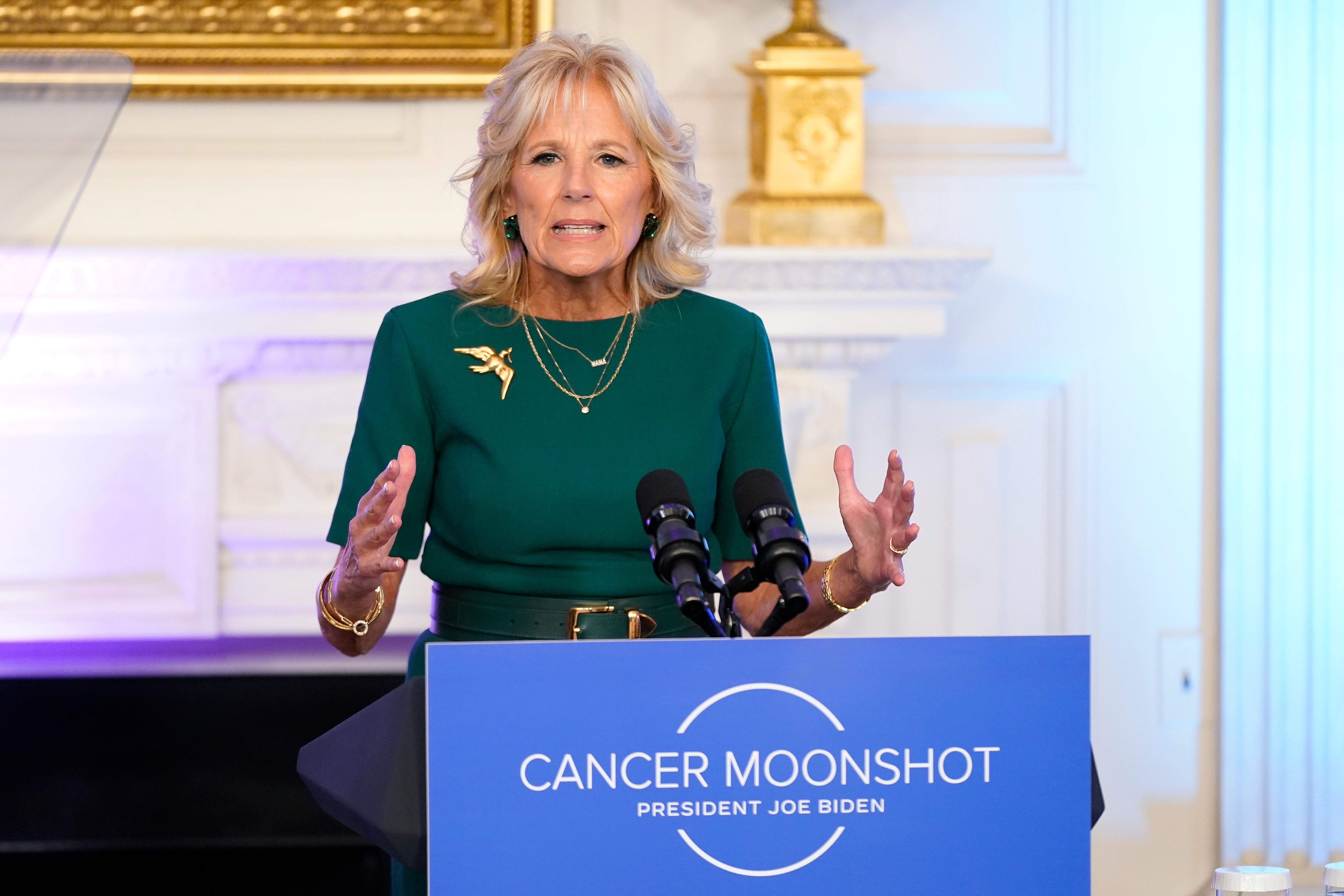Lesion removed from Jill Biden’s eyelid was non-cancerous, doctor says
The White House says a lesion removed by surgeons last week from first lady Jill Biden’s left eyelid was a non-cancerous growth

Your support helps us to tell the story
From reproductive rights to climate change to Big Tech, The Independent is on the ground when the story is developing. Whether it's investigating the financials of Elon Musk's pro-Trump PAC or producing our latest documentary, 'The A Word', which shines a light on the American women fighting for reproductive rights, we know how important it is to parse out the facts from the messaging.
At such a critical moment in US history, we need reporters on the ground. Your donation allows us to keep sending journalists to speak to both sides of the story.
The Independent is trusted by Americans across the entire political spectrum. And unlike many other quality news outlets, we choose not to lock Americans out of our reporting and analysis with paywalls. We believe quality journalism should be available to everyone, paid for by those who can afford it.
Your support makes all the difference.A lesion removed by surgeons last week from first lady Jill Biden’s left eyelid was a non-cancerous growth, Dr Kevin O'Connor, physician to President Joe Biden, said Wednesday.
O'Conner said in a memo released by the White House that a biopsy showed that the legion was seborrheic keratosis, a “very common, totally harmless, non-cancerous growth.”
Surgeons last week also removed a cancerous lesion above Jill Biden’s right eye and one on her chest. Those lesions were both confirmed to be basal cell carcinoma.
Basal cell carcinoma is the most common type of skin cancer, but also the most curable form. It’s considered highly treatable, especially when caught early. It is a slow-growing cancer that usually is confined to the surface of skin — doctors almost always can remove it all with a shallow incision — and seldom causes serious complications or becomes life-threatening.
“Dr. Biden is recovering nicely from her procedures," O'Connor wrote. "She experienced some anticipated mild bruising and swelling, but feels very well."